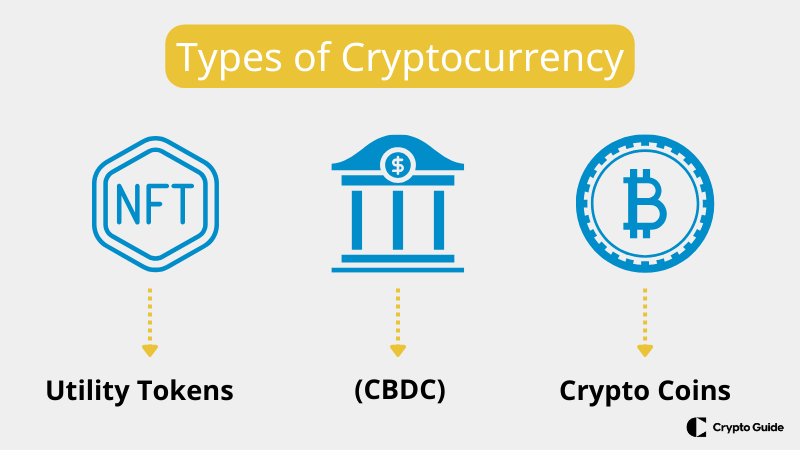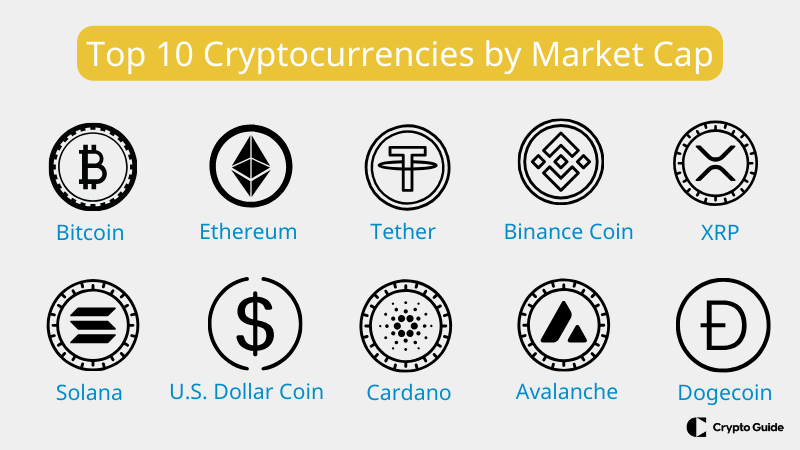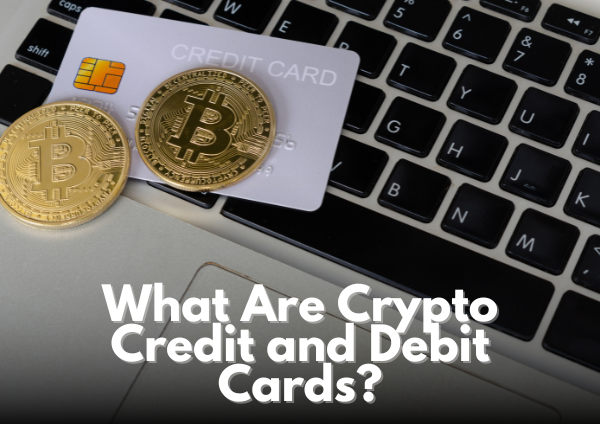Types of Cryptocurrency: Explained
Since Bitcoin's debut more than a decade ago, many new types of cryptocurrency have emerged. This article will delve into three primary categories defining the modern crypto space: Tokens, Coins, and Central Bank Digital Currencies (CBDCs). Each segment plays a unique role in reshaping the future of finance, offering distinct features and functionalities.
Table of content
Key Highlights
- Crypto Evolution: Since Bitcoin's debut, the crypto landscape has diversified into Tokens, Coins, and CBDCs.
- Utility Tokens: Actively engage users in decentralized systems, offering access to specific features.
- Crypto Coins: Core units for transactions, driving participation in decentralized applications.
- CBDCs: Digital national currencies modernizing finance with stability and oversight.
- Meme Coins: Playful entries like Dogecoin gain popularity through community and culture.
- Top 10 Cryptos: Bitcoin, Ethereum, Tether, Binance Coin, XRP, Solana, USDC, Cardano, Avalanche, and Dogecoin lead the market.
What are The Main Different Types of Cryptocurrency?
As we mentioned, there are three main types of cryptocurrency – Utility Tokens (often just Tokens), Coins, and Central Bank Digital Currencies (CBDC). As cryptocurrency experts, we'd like to cover all three in more detail.

Utility Tokens
Utility tokens stand as a pivotal category among types of crypto assets, serving as digital assets with specific use cases within decentralized networks or ecosystems. Unlike regular money, utility tokens provide access to certain services, products, or features within a particular blockchain system.
They're like the key that unlocks different functions in decentralized applications (DApps). So, when you hold utility tokens, you're not just holding currency; you're actively participating in and contributing to the workings of a blockchain network. It's all about making these decentralized systems more efficient and functional networks.
There are 5 different categories of cryptocurrency utility tokens:
- Service Tokens
- Finance Tokens
- Governance Tokens
- Media and Entertainment Tokens
- Non-Fungible Tokens (NFTs)
Service Tokens
Service tokens act as the navigation system in decentralized ecosystems. If you're part of a decentralized platform, holding service tokens is like having a versatile map. These tokens grant access to specific tools, features, or resources, enhancing your experience within the decentralized world. It's akin to having a personalized guide that opens doors to various services within the platform.
Finance Tokens
Finance tokens are the fuel that powers the decentralized financial engine. In decentralized finance (DeFi), these tokens are essential components.
They facilitate lending, borrowing, and yield farming, allowing users to participate actively in a decentralized financial ecosystem. Finance tokens make the decentralized money game possible, allowing users to grow their assets within the blockchain space.
Governance Tokens
Governance tokens transform token holders into decision-makers in the decentralized landscape. Picture it as participating in a democratic process where you have a direct say in the rules and policies of the network.
Holders can propose changes, vote on important decisions, and actively shape the future direction of the decentralized community. Governance tokens turn users into active contributors, fostering a sense of community and shared responsibility.
Media and Entertainment Tokens
Media and entertainment tokens bring an element of exclusivity to the digital entertainment world. If you're a fan of decentralized media platforms, holding these tokens is like having a backstage pass.
They provide special access to exclusive content, unique experiences, or premium services within the decentralized entertainment ecosystem. It's a way of enhancing your digital entertainment experience and being part of a select group with added perks.
Non-Fungible Tokens (NFTs)
Non-fungible tokens (NFTs) are the digital signatures of the crypto universe. Each NFT is a one-of-a-kind digital asset, making it unique and irreplaceable. Beyond digital art, NFTs have made a mark in various fields, including gaming, collectables, and virtual real estate.
Owning an NFT is like having a digital masterpiece with a distinct identity, and the blockchain ensures its authenticity and scarcity, adding value to the digital ownership experience.
Types of Crypto Coins
Cryptocurrency coins, the core of digital transactions, operate as the primary unit of value within decentralized networks. Unlike traditional currency, these digital coins, like Bitcoin and Ethereum, represent a dynamic form of value exchange.
Holding these coins goes beyond mere currency ownership; it involves active participation in decentralized applications (DApps) and contributes to the overall evolution of decentralized finance. Coins are crucial in reshaping how we engage with currency, fostering financial inclusivity, and driving the digital revolution.

There are various types of cryptocurrency coins:
- Altcoins
- Stablecoins
- Meme Coins
Altcoins
Altcoins, or alternative coins, constitute a diverse type of crypto beyond the well-known Bitcoin. Each altcoin operates on its blockchain, introducing unique features and use cases.
Examples include Ethereum (ETH), Ripple (XRP), and Litecoin (LTC). Altcoins contribute to a more varied and specialized cryptocurrency ecosystem, offering investors and users alternatives to the original types of digital currency.
Stablecoins
Stablecoins, designed to minimize the often volatile nature of cryptocurrencies, peg their value to real-world assets like fiat currencies or commodities. Tether (USDT), USD Coin (USDC), and DAI are famous examples.
These coins aim to provide stability, making them a favored choice for traders seeking to hedge against market fluctuations while maintaining the efficiency and speed of blockchain transactions.
Meme Coins
Meme coins from internet culture bring a playful and often speculative element to the crypto space. Examples like Dogecoin (DOGE) or Shiba Inu (SHIB) gained popularity due to memes and community engagement rather than conventional utility.
While meme coins may lack severe use cases, they showcase the power of online communities in influencing the value and perception of cryptocurrencies more light-heartedly.
Central Bank Digital Currencies (CBDC)
Central Bank Digital Currencies (CBDCs) are digital forms of a country's national currency issued and regulated by its central bank. Unlike decentralized cryptocurrencies such as Bitcoin, CBDCs are centralized and typically operate on the permission of blockchain networks.
The primary objective of CBDCs is to provide a digital representation of traditional fiat currency, offering the benefits of digital transactions while maintaining the stability and regulatory oversight associated with government-backed money.
CBDCs can take different forms, such as retail CBDCs accessible to the general public or wholesale CBDCs designed for interbank transactions. The adoption of CBDCs is driven by the desire to modernize financial systems, improve payment efficiency, and explore new avenues for financial inclusion. As various countries explore and pilot CBDC initiatives, the concept represents a significant intersection of traditional finance and emerging digital technologies.
What is the Difference Between Tokens, Coins, and CBDCs?
In this comprehensive comparison, we'll explore the unique features of tokens, coins, and CBDCs to help you better understand the nuances of these different types of crypto coins.
| Aspect | Utility Tokens | Crypto Coins | CBDCs |
| Nature | Digital assets for decentralized use cases. | Digital units for transactions and DApps | Digital representation of national currency |
| Function | Provides access to blockchain features. | Primary unit for transactions and participation | Modernizes financial systems |
| Examples | Service Tokens, Finance Tokens, NFTs. | Bitcoin and altcoins | Digital versions of Crypto yuan |
| Purpose | Enhances decentralized systems. | Reshapes currency engagement | Modernizes finance |
| Volatility | Values can fluctuate. | Can be highly volatile | Aims for stability |
| Issuer | Decentralized networks. | No centralized issuer (only for bitcoin) | Central bank of a country |
| Use Cases | Diverse blockchain applications. | Transactions, investments, DApps | Digital representation of currency |
FAQ
What are The Types of cryptocurrency?
Cryptocurrencies include Tokens, Coins, and Central Bank Digital Currencies (CBDCs).
What is the difference between Bitcoin and Altcoins?
Bitcoin is the original; altcoins are alternatives with unique features and blockchains.
What are utility tokens, and how do they work?
Digital assets in decentralized networks provide access to specific services or features.
How do privacy coins differ from other cryptocurrencies?
Prioritize user privacy with advanced cryptographic techniques for confidential transactions.
What is the difference between crypto coins and tokens?
Coins like Bitcoin are standalone digital currencies; tokens have specific uses within decentralized ecosystems.
Top 10 Cryptocurrencies by Market Cap
As cryptocurrency experts, we have singled out the ten most popular cryptocurrencies.
- Bitcoin (BTC)
- Ethereum (ETH)
- Tether (USDT)
- Binance Coin
- XRP (XRP)
- Solana (SOL)
- U.S. Dollar Coin (USDC)
- Cardano (ADA)
- Avalanche (AVAX)
- Dogecoin (DOGE)

Now, let's talk about all these cryptos in more detail.
- Bitcoin (BTC)
- Market Cap: ~$835,5 billion
Introduced by the pseudonymous Satoshi Nakamoto in 2008, Bitcoin (BTC) is the trailblazer in cryptocurrencies. Operating on a proof-of-work consensus algorithm, Bitcoin's limited supply of 21 million coins positions it as a secure store of value. As of [Current Date], one Bitcoin is valued at [Replace with current price], showcasing its remarkable growth since its inception.
- Ethereum (ETH)
- Market Cap: ~$272,7 billion
Conceived by Vitalik Buterin in 2015, Ethereum (ETH) revolutionized the crypto space with its smart contract functionality. Serving as the backbone for decentralized applications (DApps), Ethereum is at the forefront of the decentralized finance (DeFi) and non-fungible token (NFT) ecosystems. The community eagerly anticipates Ethereum 2.0, a transition to a proof-of-stake consensus mechanism.
- Tether (USDT)
- Market Cap: ~90,8 billion
Tether (USDT) has established itself as a leading stablecoin, pegged 1:1 to the U.S. dollar. Widely adopted for its stability, USDT plays a pivotal role in crypto trading, providing a reliable hedge against market volatility. Its transparency and liquidity have contributed to its status as a preferred choice for traders.
- Binance Coin (BNB)
- Market Cap: ~37,8 billion
The Binance exchange crafted Binance Coin (BNB) to streamline transactions and reduce trading fees. Evolving beyond its initial purpose, BNB has found utility in various blockchain applications and decentralized finance projects. The Binance Smart Chain, supporting BNB, has become a significant player in the broader blockchain landscape.
- XRP (XRP)
- Market Cap: ~34,1 billion
Developed by Ripple Labs, XRP aims to revolutionize cross-border payments, emphasizing speed and cost-effectiveness. RippleNet, the network supporting XRP, has garnered global attention from major financial institutions. XRP's focus on efficiency positions it as a key player in bridging traditional finance and blockchain technology.
- Solana (SOL)
- Market Cap: ~32,8 billion
Solana (SOL) has gained prominence for its high-performance blockchain, boasting fast transaction speeds and low fees. Positioned as an efficient solution, Solana attracts decentralized applications and projects seeking scalability. Its recent surge underscores the growing demand for effective and economical blockchain solutions.
- U.S. Dollar Coin (USDC)
- Market Cap: ~24,4 billion
USDC stands out as a regulated stablecoin pegged to the U.S. dollar. Its transparency and regular audits make it a preferred choice for users seeking stability in the crypto market. The token's role in decentralized finance applications, where a stable value is crucial, has contributed to its increasing adoption.
- Cardano (ADA)
- Market Cap: ~22,4 billion
Founded by Charles Hoskinson, a co-founder of Ethereum, Cardano (ADA) prioritizes scalability, sustainability, and interoperability. Cardano aspires to provide a secure and scalable infrastructure for decentralized applications by utilizing a proof-of-stake consensus mechanism. Ongoing research and development underscore Cardano's significance in the blockchain landscape.
- Avalanche (AVAX)
- Market Cap: ~14,4 billion
Avalanche (AVAX) distinguishes itself with a blockchain platform designed for speed and adaptability. Its Avalanche consensus protocol achieves high throughput and near-instant transaction finality, attracting decentralized applications and financial instruments. AVAX's versatility makes it a compelling option in the competitive blockchain space.
- Dogecoin (DOGE)
- Market Cap: ~13,6 billion
Originating as a meme, Dogecoin (DOGE) has evolved into a noteworthy cryptocurrency with an active and enthusiastic community. Despite its playful origins, Dogecoin has garnered widespread adoption and occasional headline-grabbing initiatives. Consequently, it has become a distinctive presence in the crypto market.
Note! *Capitalization and pricing data are obtained from coinmarketcap.com and are
current as of 10 a.m. Coordinated Universal Time (UTC) on December 15, 2023.
Conclusions
In the dynamic realm of cryptocurrency, innovation knows no bounds. From the playful allure of meme coins to the foundational impact of utility tokens and the groundbreaking potential of CBDCs, the crypto space continues to redefine finance.
The top 10 cryptocurrencies showcase a captivating mix of pioneers like Bitcoin and Ethereum alongside newcomers like Solana and Avalanche, each contributing to a financial revolution that transcends traditional boundaries. As the digital frontier unfolds, these cryptocurrencies represent a shift in wealth and embody the community-driven spirit that propels the crypto narrative forward. The finance story is being rewritten, one decentralized block at a time.



